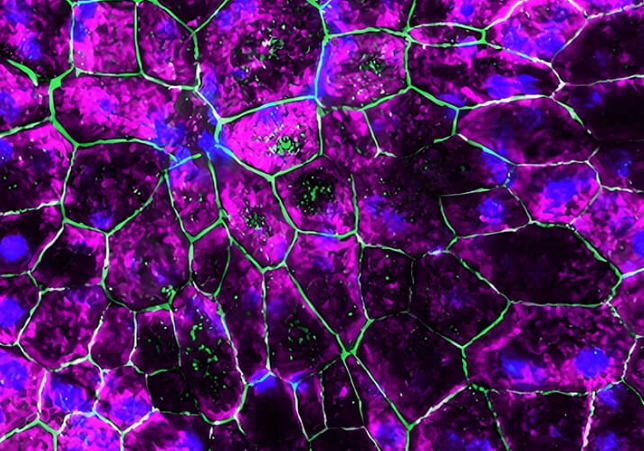Singapore’s ClavystBio backs UK biotech Cirrus Therapeutics’s $11M funding

Cirrus Therapeutics, an United Kingdom-based ocular immunology-focused biotech, announced Wednesday the close of an $11 million seed financing to advance its pipeline of gene and cell therapies aimed at improving quality of life and extending the ocular healthspan of patients with chronic blinding diseases.
The round was led by ClavystBio, with participation from Polaris Partners and SEEDS, Cirrus Therapeutics said in a statement.
Cirrus will use the proceeds from the seed financing to advance its lead program into IND-enabling studies.
This novel adeno-associated virus (AAV) ocular gene therapy is designed to reverse a recently identified and validated underlying cause of dry age-related macular degeneration (dry AMD): loss of IRAK-M protein, a key immune regulator expressed in retinal cells.
AMD is the leading cause of vision loss for people aged 50 and over, affecting over 200 million people worldwide.
This figure is projected to surge to 288 million by 2040 as the global population ages.
The progressive eye disease that destroys the macula, the central part of the retina responsible for sharp, detailed vision.
It typically begins with poor low-light vision and slight blurriness before gradually expanding into a central blind spot that makes it impossible to read, drive, recognize faces, or perform the daily tasks that define independent living.
“Current approved treatments for dry AMD, and much of the therapeutic pipeline, target a single disease-implicated pathway — primarily the complement cascade,
“To date, however, existing approaches have yet to demonstrate functional benefits. Replenishing IRAK-M expression offers an exciting opportunity to target an underlying driver of retinal degeneration – aging itself – thwarting the multi-pathway activity that leads to AMD and preventing or reversing vision loss,” said Professor Andrew Dick, Co-founder and Chief Scientific Advisor of Cirrus, as well as Head of Academic Unit of Ophthalmology, University of Bristol, and the Duke Elder Chair and Director of Institute of Ophthalmology, University College of London (UCL).
In June 2024, Cirrus Therapeutics, the University of Bristol and the UCL Institute of Ophthalmology published breakthrough research in Science Translational Medicine identifying IRAK-M as a key regulator of ocular health and a novel therapeutic target for dry AMD.
Expressed predominantly in retinal pigment epithelial (RPE) cells, IRAK-M maintains the retina’s immune homeostasis.
Levels of this protein naturally decrease with age and fall even more sharply in people with dry AMD, leaving the retina vulnerable to chronic inflammation, mitochondrial dysfunction and oxidative stress that drive dry AMD onset and progression.
In preclinical models, restoring IRAK-M to normal levels significantly protected against retinal degeneration.
“We are thrilled to have the support of our committed investor syndicate as we work to deliver a safe, effective and durable treatment for a disease that robs millions of people of their vision, independence and quality of life as they age,” said Ying Kai Chan, PhD, Chief Executive Officer and Co-founder of Cirrus Therapeutics.
“By pairing the disease-modifying IRAK-M target with a modality that would enable a one-time treatment, we aim to protect and preserve vision,
“This not only represents a major medical advance to address a highly prevalent blinding disease, but also heralds a paradigm shift for the application of gene therapy, for which approved products have been reserved for rare, monogenic diseases thus far,” he added.
Khoo Shih, PhD, Chief Executive Officer of ClavystBio, said Cirrus’ bold approach focuses on pioneering novel yet well-validated biology from human genetics and aging data to deliver transformational impact in dry AMD, a disease of high unmet need.
“At ClavystBio, we are committed to backing Cirrus and its talented founders to advance this important therapy toward the clinic, and build its earlier stage pipeline,” he added.
It is noted that ocular diseases offer a particularly compelling application for gene therapy.
A durable, sustained effect from a one-time treatment for dry AMD would starkly contrast with the continual (monthly or bi-monthly) intraocular injections required by existing approved therapies for the disease. Since the eye is small, it requires only a very small dose of therapy, yielding advantages from both a manufacturing and cost perspective, making large population deployment practical.
The eye is also a contained and immune-privileged tissue compartment, reducing off-target effects and immunogenicity, challenges often associated with systemic applications.
#GeneTherapy #OcularHealth #BiotechInnovation #AMDResearch #VisionRestoration
- Art
- Causes
- Crafts
- Dance
- Drinks
- Film
- Fitness
- Food
- Spiele
- Gardening
- Health
- Startseite
- Literature
- Music
- Networking
- Andere
- Party
- Religion
- Shopping
- Sports
- Theater
- Wellness


